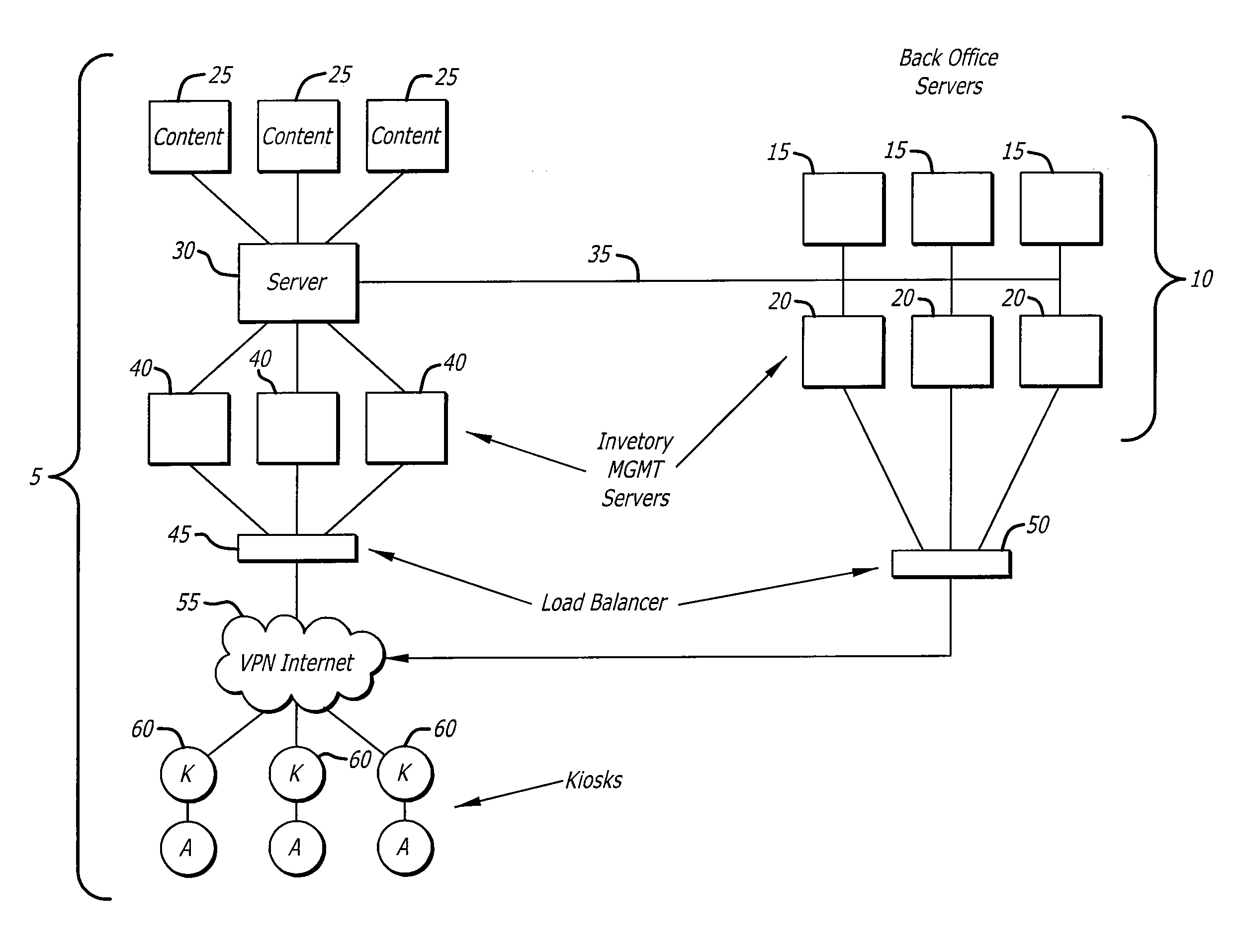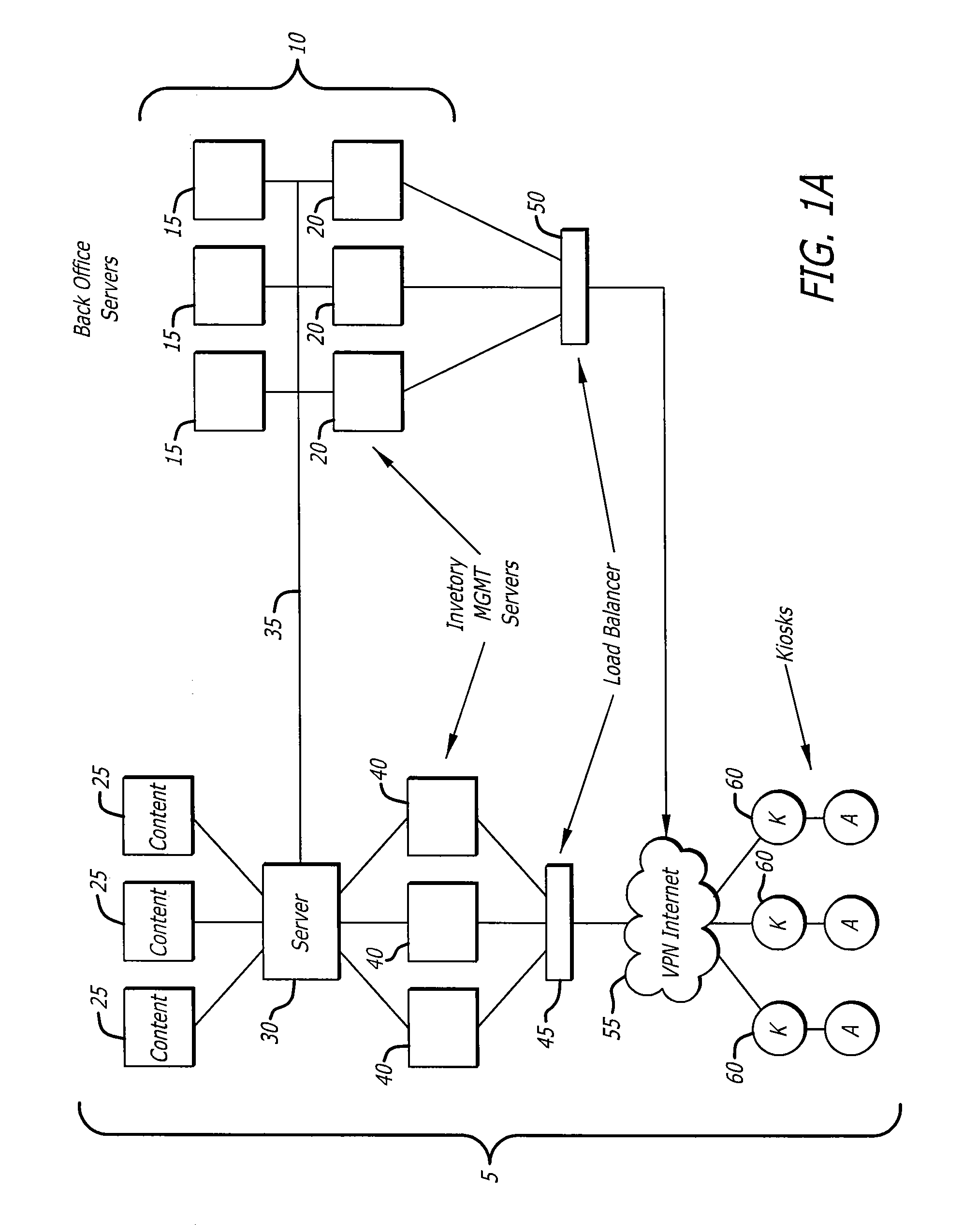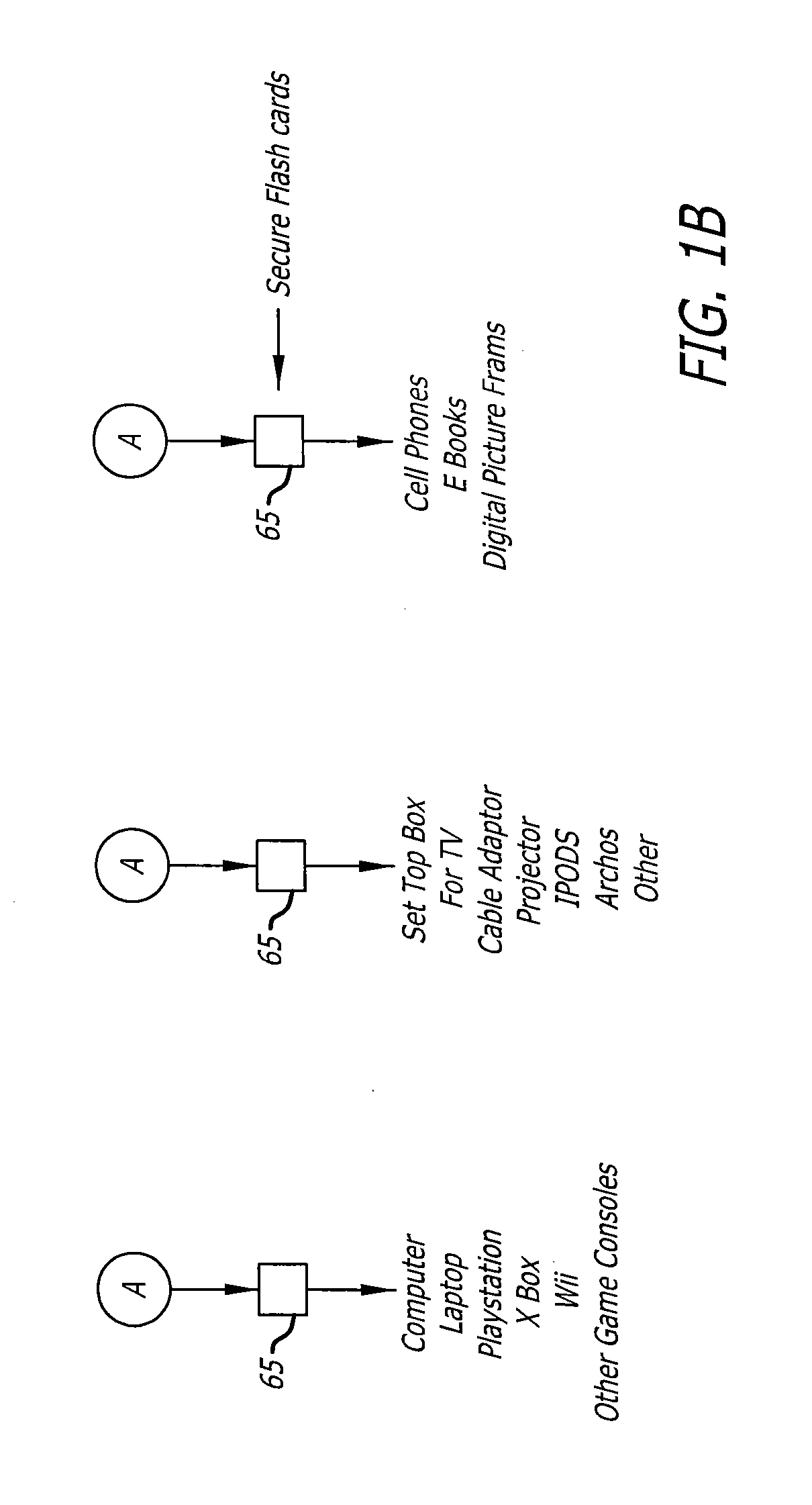System and method for distributing digital content
a technology of digital content and distribution methods, applied in data processing applications, memory adressing/allocation/relocation, instruments, etc., can solve the problems of inability to meet the needs of consumers, etc., to achieve rapid content acceptance.
- Summary
- Abstract
- Description
- Claims
- Application Information
AI Technical Summary
Benefits of technology
Problems solved by technology
Method used
Image
Examples
Embodiment Construction
[0032]Referring now to the drawings in detail, in which like reference numerals indicate like or corresponding elements among the several figures, there is shown in FIG. 1 one embodiment of a distribution system for providing digital content to a consumer in a convenient manner that reduces customer waiting time while the content is downloaded to a portable format while still providing breadth of choice and low price.
[0033]As shown in FIG. 1, the distribution system typically includes a content delivery portion 5 and a back office management portion 10. Back office management portion will include one or more servers, databases, data storage, printers, input devices and other equipment 15 that are interconnected using appropriate high speed connections, such as are provided by Ethernet or other networking and communication systems that are well known in the art. Additionally, back office management portion 10 also includes servers and databases 20 that provide for inventory managemen...
PUM
 Login to View More
Login to View More Abstract
Description
Claims
Application Information
 Login to View More
Login to View More - R&D
- Intellectual Property
- Life Sciences
- Materials
- Tech Scout
- Unparalleled Data Quality
- Higher Quality Content
- 60% Fewer Hallucinations
Browse by: Latest US Patents, China's latest patents, Technical Efficacy Thesaurus, Application Domain, Technology Topic, Popular Technical Reports.
© 2025 PatSnap. All rights reserved.Legal|Privacy policy|Modern Slavery Act Transparency Statement|Sitemap|About US| Contact US: help@patsnap.com



